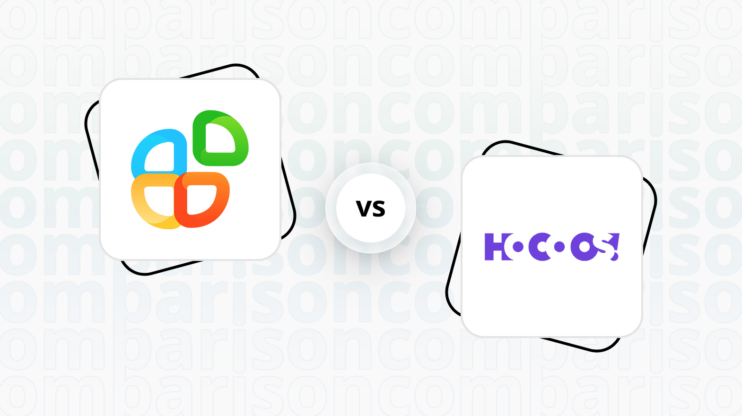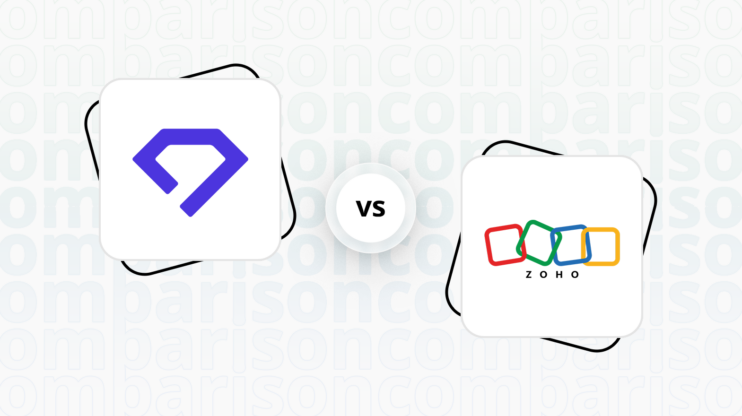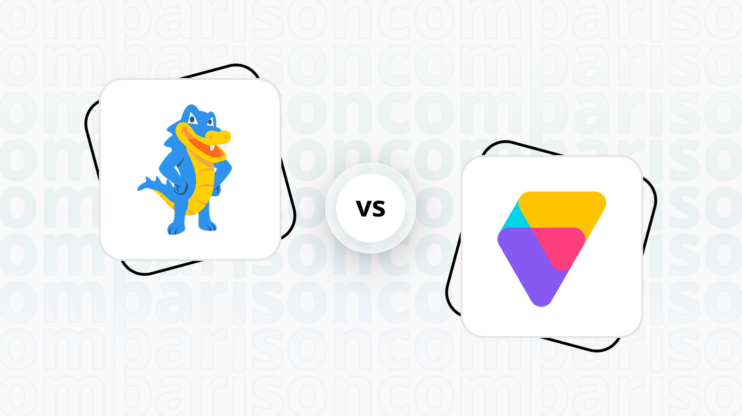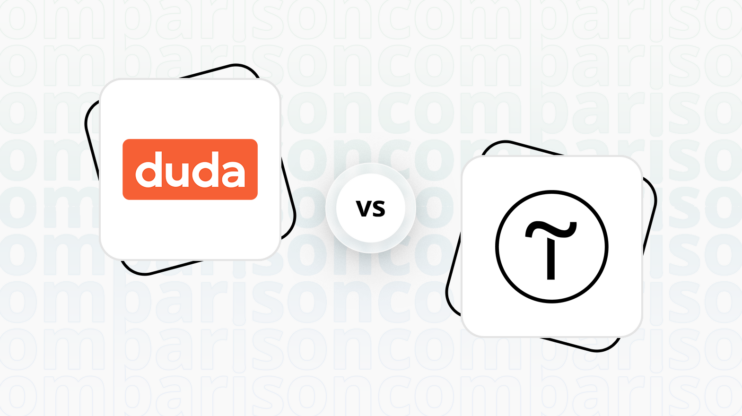Final verdict
Blocs and Drupal both offer unique advantages, but they cater to different user needs and expertise levels.
-
Blocs (Overall Grade: 5.8/10)
is a powerful and user-friendly website builder designed specifically for Mac users. It excels in ease of use, making it ideal for designers and developers who want to create professional websites without writing code. Blocs offers a range of responsive design templates and integrates with popular web standards and tools. However, it may not be the best choice for users seeking extensive customization or advanced ecommerce functionalities. -
Drupal (Overall Grade: 6.4/10)
is an open-source content management system known for its flexibility and extensibility. It is suitable for building complex websites with custom functionalities, making it a versatile choice for developers. Drupal offers a wide range of modules and themes, robust security features, and comprehensive user management capabilities. However, it has a steeper learning curve and may require more technical expertise compared to Blocs.

|

|
|
|---|---|---|
|
Design functionalities & templates |
7.5 |
7.8 |
|
Ease of use |
8.7 |
5.4 |
|
Ecommerce |
7.0 |
7.5 |
|
Website editors |
7.5 |
7.5 |
|
Product testing options |
7.0 |
7.1 |
|
Price |
9.0 |
5.7 |
|
Website speed optimization |
5.2 |
6.4 |
|
Plugins/extensions and integrations |
6.8 |
8.6 |
|
Marketing features |
6.9 |
8.0 |
|
Customer support |
5.1 |
6.7 |
|
Website security |
0.0 |
8.3 |
|
AI capabilities |
5.4 |
7.5 |
|
User management |
1.4 |
9.1 |
Best for ecommerce
 7.0
7.0
 7.5
7.5
Verdict
: Blocs is suitable for Mac users seeking a user-friendly interface, while Drupal excels in flexibility and customizability for complex ecommerce needs.
-
Blocs
: Blocs is a powerful website builder designed for Mac users, offering a range of pre-designed blocks and templates. It integrates with popular ecommerce service providers like Ecwid, Stripe, Snipcart, Paddle, and Gumroad. However, it may present a learning curve for beginners or those seeking simpler ecommerce solutions. Blocs scored 7.0 in ecommerce capabilities. -
Drupal
: Drupal is an open-source CMS known for its flexibility and extensibility. It offers a comprehensive ecommerce solution through the Drupal Commerce module, which includes features like product management, shopping cart, payment gateway integration, and customizable workflows. While it has a steep learning curve, it is ideal for developers looking to create complex ecommerce websites. Drupal scored 7.5 in ecommerce capabilities.
Best for informational & business websites
 7.5
7.5
 7.5
7.5
Verdict
: When comparing Blocs vs Drupal, both platforms score equally for informational and business websites, but they cater to different user needs. Blocs is ideal for users seeking a straightforward, code-free design experience, while Drupal offers extensive customization and scalability for more complex projects.
-
Blocs
: Blocs is a user-friendly website builder designed for Mac users, offering a visual interface and pre-designed blocks. It is perfect for designers and developers who want to create professional websites without coding. Blocs excels in ease of use, making it a great choice for those who prioritize simplicity and efficiency in web design. -
Drupal
: Drupal is an open-source CMS known for its flexibility and extensibility. It is suitable for a wide range of websites, from personal blogs to complex corporate sites. Drupal offers a vast array of modules and themes, allowing for extensive customization. It is ideal for users who need a powerful platform capable of handling complex functionalities and large-scale projects.
Detailed comparison
Design functionalities & templates
Design FunctionalitiesRepresents how well each platform allows for creative design and customization of websites.Score Components:
- Template Variety (30%): Range and quality of design templates.
- Customization (30%): Flexibility and options for design alterations.
- User Interface (20%): Ease and intuitiveness of the design process.
- Responsiveness (10%): Adaptability to different devices and screen sizes.
- Innovation (10%): Unique design features and tools.
 7.5
7.5
 7.8
7.8
🏆
Winner: Drupal.
If you’re looking for a platform that offers more creative control, a wide array of design features, and a vast selection of free and premium templates, Drupal is the preferred choice.
Blocs website builder offers a vast selection of design templates, boasting over 36 layouts for various website types, including business, e-commerce, personal portfolios, and photography, catering to a wide range of user needs. These templates are designed to be responsive, ensuring optimal display across different devices, from desktops to smartphones.
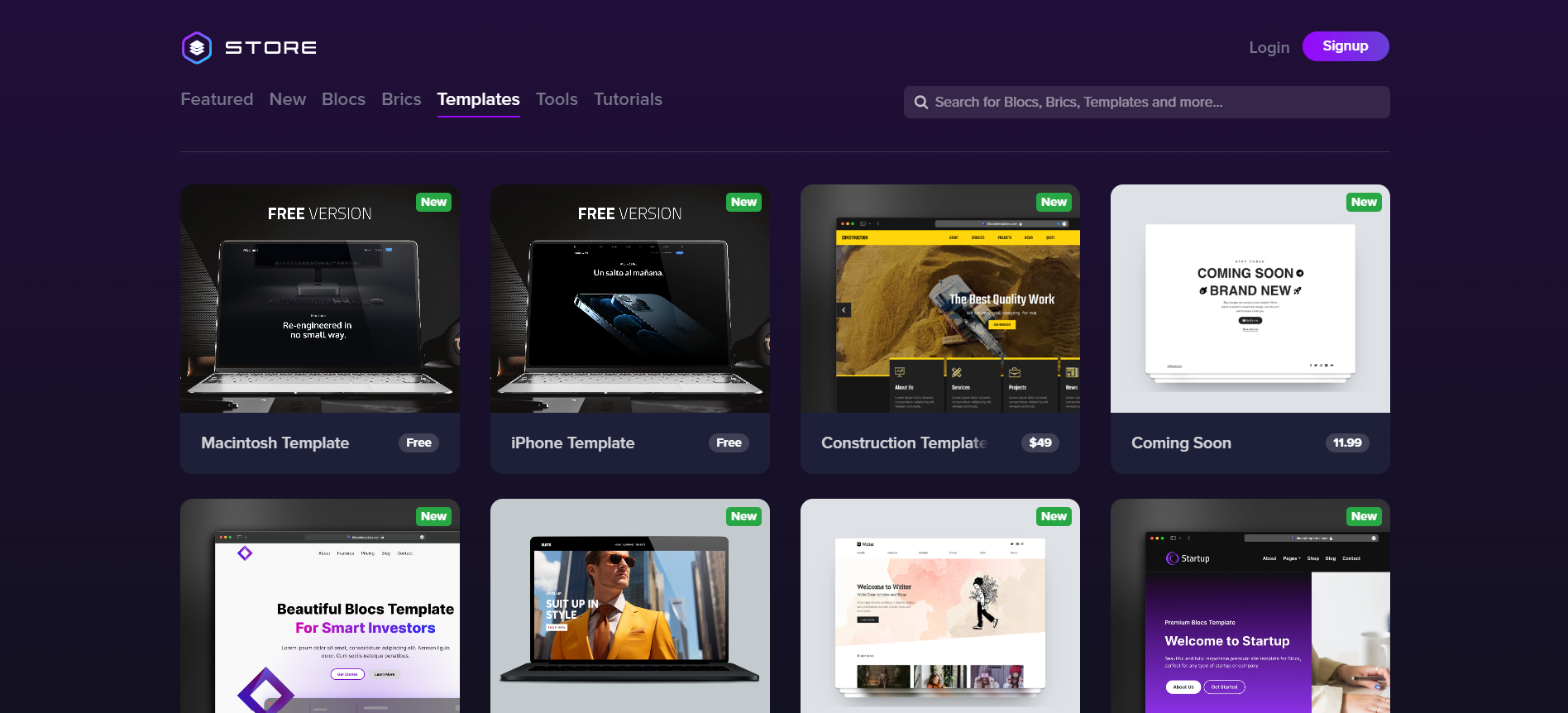
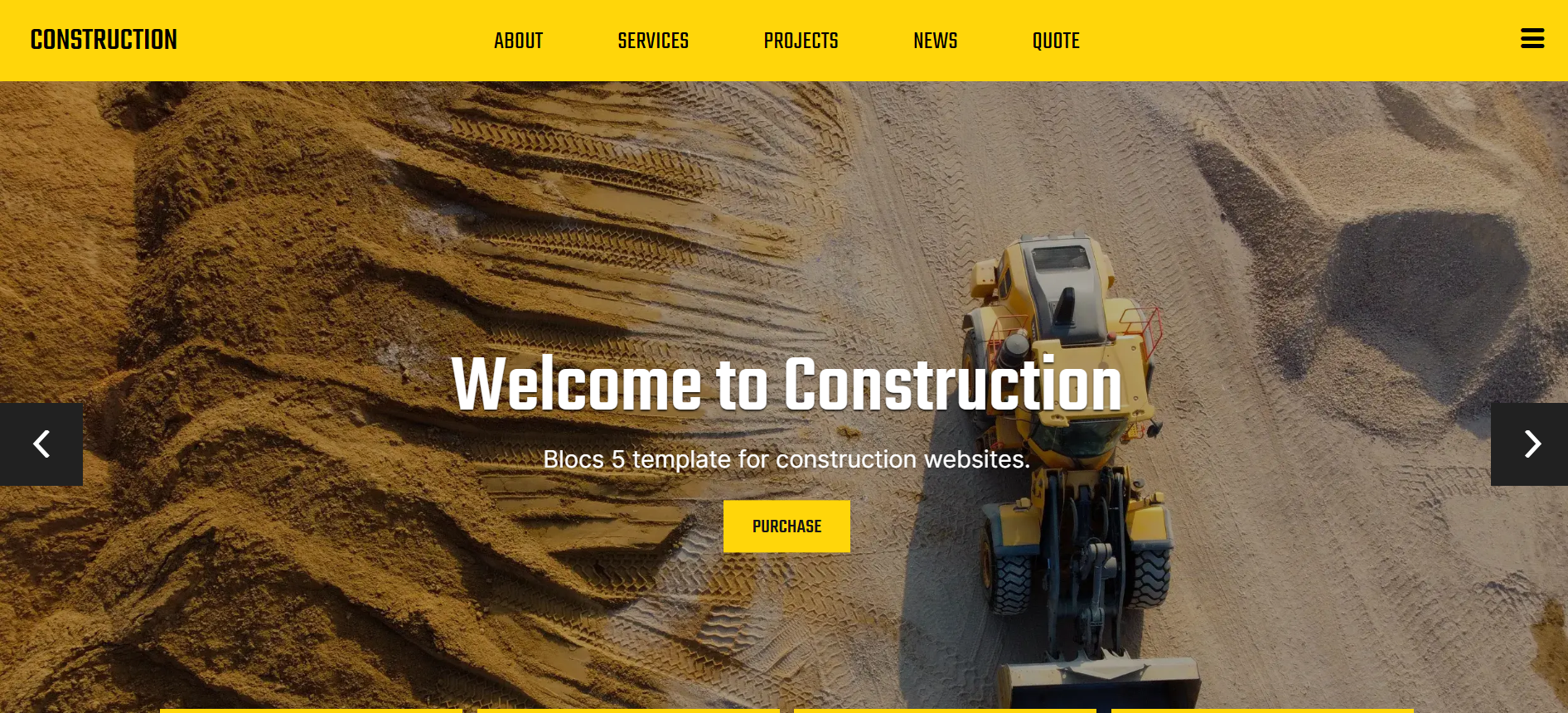
Compared to Blocs, Drupal, as a highly flexible and powerful content management system, offers a vast array of templates and designs to cater to virtually any website need. With thousands of themes available, users can choose from minimalist designs, industry-specific layouts, and highly customizable multipurpose themes.
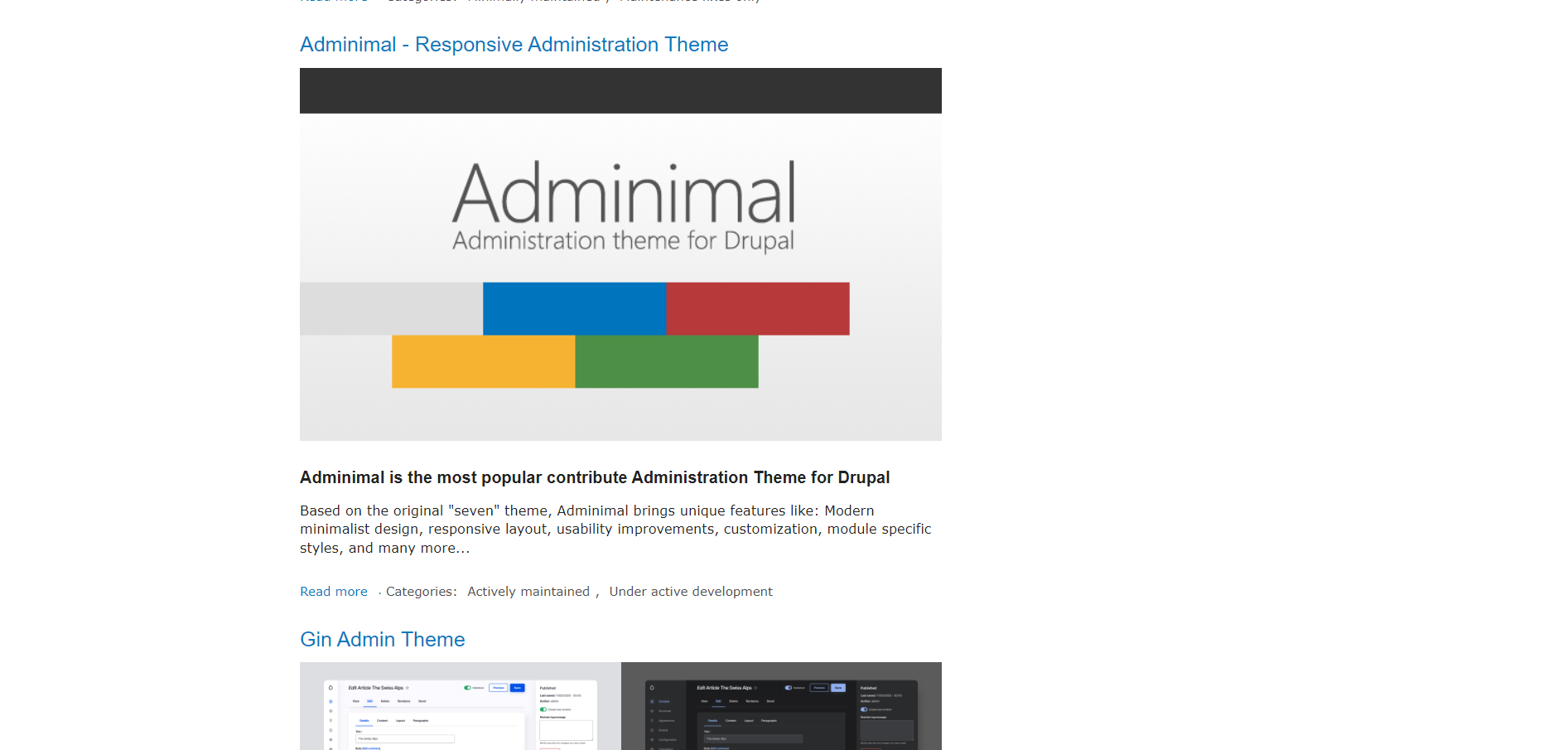
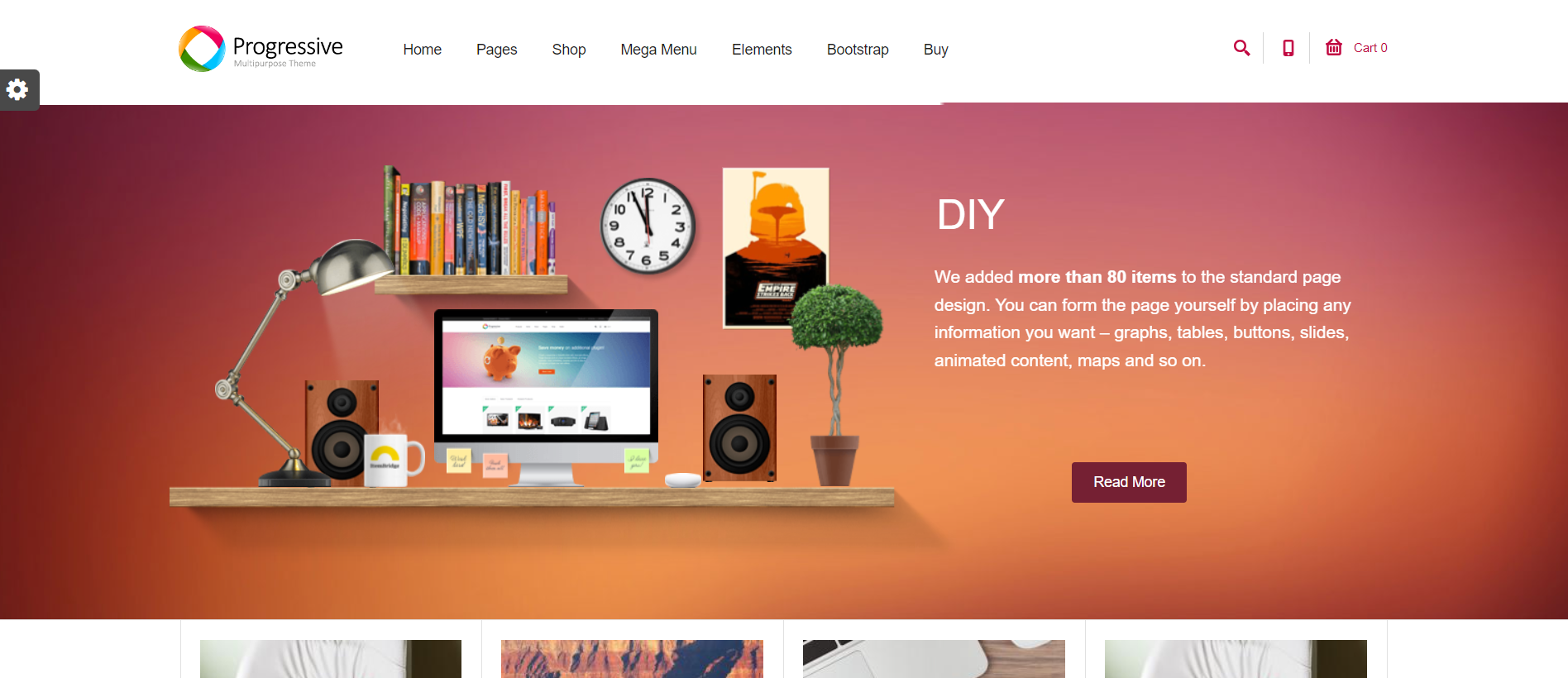
Get a head start on website creation with AI
Create a custom website tailored to your business needs 10X faster with 10Web AI Website Builder!
Ease of use
Ease of useReflects the platform’s overall user-friendliness.Score
Components:
- Learning curve (40%): Quickness and ease of getting started.
- Interface design (30%): Simplicity and intuitiveness of layout.
- User guidance (20%): Quality of tutorials and support.
- Flexibility (10%): Adaptability to various user skills.
 8.7
8.7
 5.4
5.4
🏆 Winner: Blocs
. Scoring a solid 8.7, Blocs stands out for its user-friendly interface, making it exceptionally easy for Mac users to create and manage their websites. Drupal, with a score of 5.4, offers a robust platform but with a steeper learning curve, especially for those new to web development. If ease of use is a priority, Blocs is the clear winner in this category.
Learning Resources
🏆 Winner: Blocs
. While both platforms offer solid learning resources, Blocs goes a step further with its comprehensive suite of learning resources for web design, catering to both beginners and advanced users.
For ecommerce
EcommerceMeasures the platform’s effectiveness in supporting online business activities.Score Components:
- Ecommerce themes and templates (20%): Variety and design of templates.
- Product management (25%): Ease of managing and organizing products.
- Payment options (25%): Variety and convenience of payment methods.
- Ecommerce features (20%): Features for managing an ecommerce store.
- Integration (10%): Compatibility with external e-commerce tools and services.
 7.0
7.0
 7.5
7.5
When it comes to ecommerce, both Blocs and Drupal offer a range of features, but they cater to different user needs. Blocs, with its user-friendly interface and pre-designed blocks, is ideal for Mac users looking to create professional websites with minimal effort. It supports ecommerce through integration with leading service providers like Ecwid, Stripe, Snipcart, Paddle, and Gumroad. However, it might present a learning curve for complete beginners or those looking for simpler, more intuitive ecommerce solutions.
On the other hand, Drupal, an open-source CMS, is known for its flexibility and extensibility, enabling developers to create complex websites with custom functionalities. With its Drupal Commerce module, it offers a flexible ecommerce solution that can be seamlessly integrated into its CMS. It provides a wide array of features including product management, shopping cart, payment gateway integration, and customizable workflows. However, it has a steep learning curve for users not familiar with Drupal, and performance can be a concern for very large-scale stores without proper optimization.

|

|
|
|---|---|---|
|
Ecommerce themes and templates |
7.8 |
7.8 |
|
Product page customization |
6.5 |
8.3 |
|
Payment processing and commissions |
7.0 |
7.5 |
|
POS capabilities |
0.0 |
5.5 |
|
Payment gateways |
7.5 |
7.7 |
|
Product numbers |
6.0 |
7.0 |
|
Additional ecommerce features |
7.2 |
8.0 |
Blocs ecommerce features:
- Stripe integration
- Snipcart shopping cart integration
- Gumroad integration
- Ecwid integration
Drupal ecommerce features:
- Shopping Cart and Checkout Process
- Payment Gateway Integration
- Order Management and Invoicing
- Tax Calculation and VAT Support
- Shipping and Fulfillment
- Promotions and Discounts
- Reporting and Analytics
- Security and Compliance
Ecommerce themes & templates
Blocs provides a range of ecommerce-specific templates, allowing users to quickly launch optimized online stores or business platforms. These premium templates are designed to be fast, visually appealing, and SEO-friendly, ensuring websites look great on all devices and load quickly.
On the other hand, Drupal offers a wide array of eCommerce themes designed to cater to different types of online stores, from clean and simple designs to more sophisticated and feature-rich options. These themes are built with responsiveness in mind, ensuring that stores function seamlessly across various devices.
Product page customization
Blocs primarily offers ecommerce features through third-party ecommerce platforms such as Ecwid, so the product page customization possibilities vary depending on which platform is integrated.
Drupal offers extensive customization possibilities for product pages through its modular architecture, allowing for detailed content types, flexible displays with Views, and theme customizations. The Drupal Commerce module enriches e-commerce functionalities, enabling tailored product management, checkout flows, and payment systems.
Payment processing
The Blocs website builder supports ecommerce through integrations with third-party ecommerce providers, suggesting flexibility in the use of various payment gateways without directly listing them. Blocs does not charge transaction fees or commissions, however such fees may be charged by the payment gateways or e-commerce platforms themselves.
Drupal supports a wide range of payment gateways through third-party modules, including popular ones like PayPal, Stripe, and Authorize.Net. These modules enable seamless integration for e-commerce functionalities on Drupal sites. While Drupal itself does not charge any commissions or transaction fees, the individual payment gateways integrated with it do have their own fee structures.
Website Editors
Website EditorsEvaluates the platforms’ website building and editing capabilities.Score Components:
- Customization tools (40%): Range and power of editing features.
- Editor usability (30%): User experience within the editor.
- Design flexibility (20%): Freedom in layout and design changes.
- Update and maintenance ease (10%): Simplicity of updating and maintaining the site.
 7.5
7.5
 7.5
7.5
Winner: Tie
. Both Blocs and Drupal scored 7.5 for their website editors, indicating comparable capabilities.
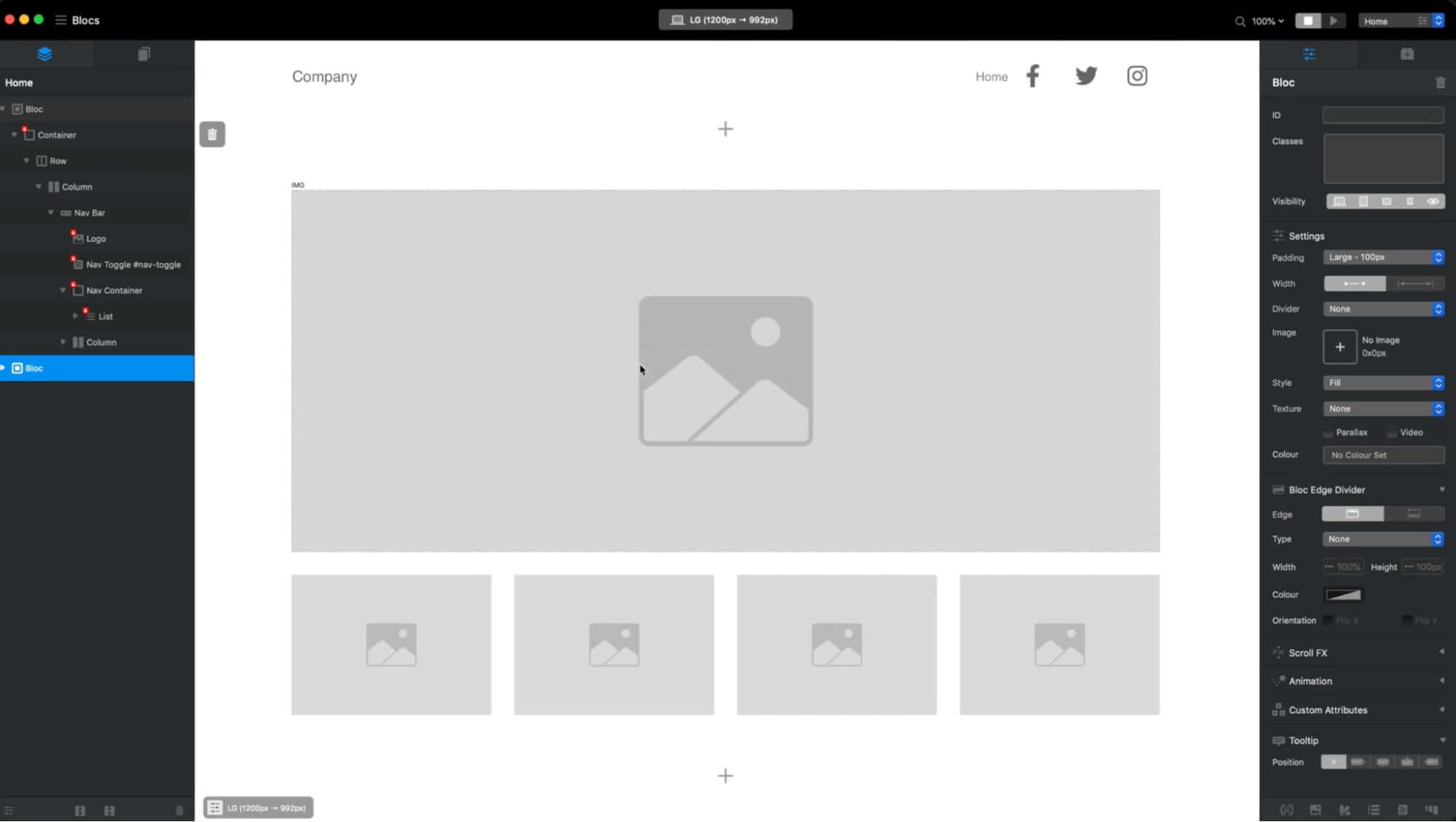
Blocs is a user-friendly web design tool designed specifically for Mac users. It utilizes a block-based interface with drag-and-drop functionality, making web design accessible to designers and creatives without technical backgrounds. The app offers a variety of pre-designed blocks, integration options, and SEO tools to streamline the website creation process. However, its block-based approach might limit the customization options for more advanced users who prefer granular control over every aspect of their website’s design and functionality.
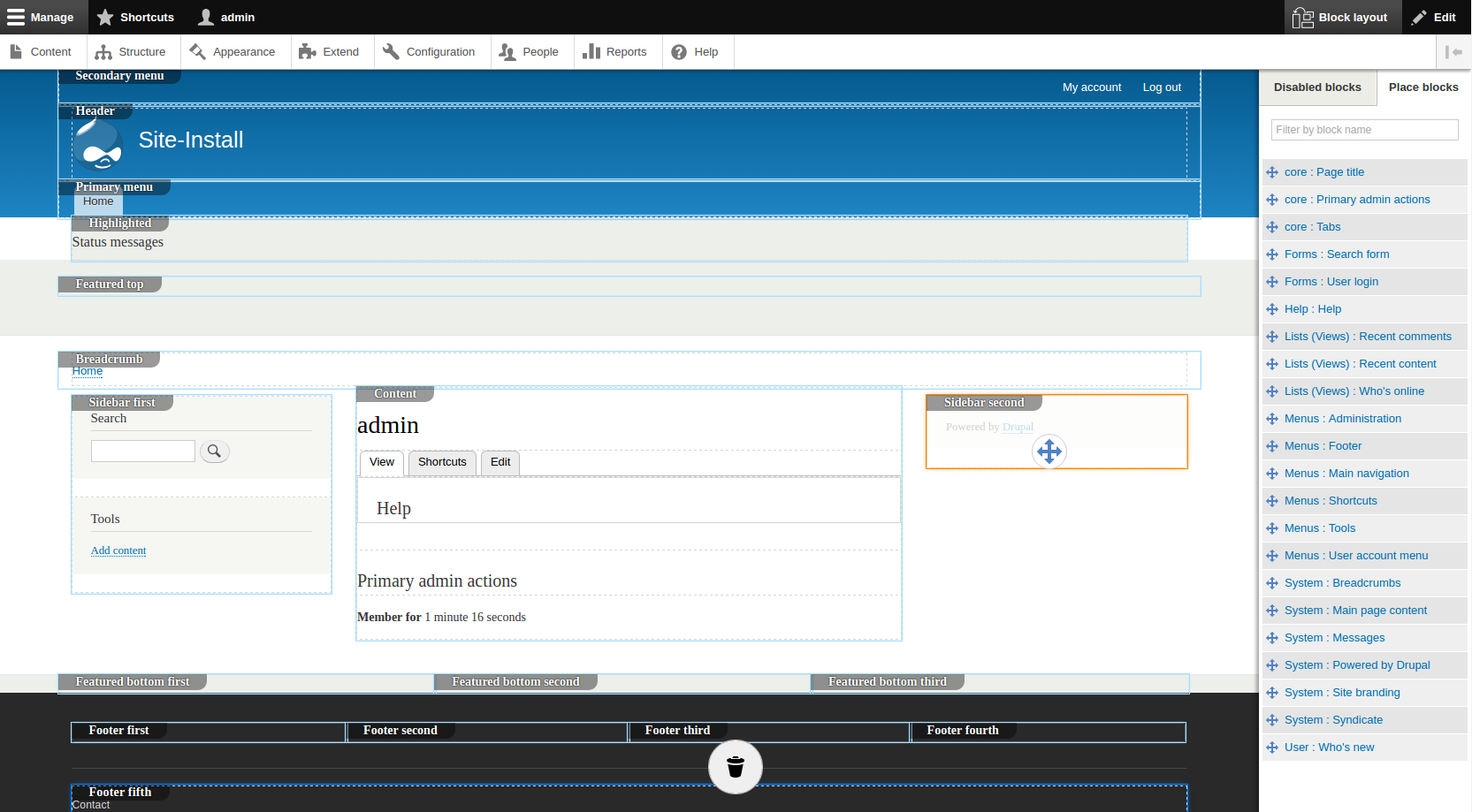
On the other hand, Drupal’s editor, commonly integrated through modules such as CKEditor, offers a wide range of features tailored for content creation and management. It supports rich text editing, enabling users to format text, insert links, images, and media, as well as create tables and lists with ease. The editor is highly customizable, allowing administrators to configure toolbars and options according to the needs of their site. However, its steep learning curve can be a limitation for new users, and while it’s highly customizable, achieving certain functionalities may require additional modules or custom development, which can be challenging for those without technical expertise.
Mobile editor/app
 8.5
8.5
 0
0
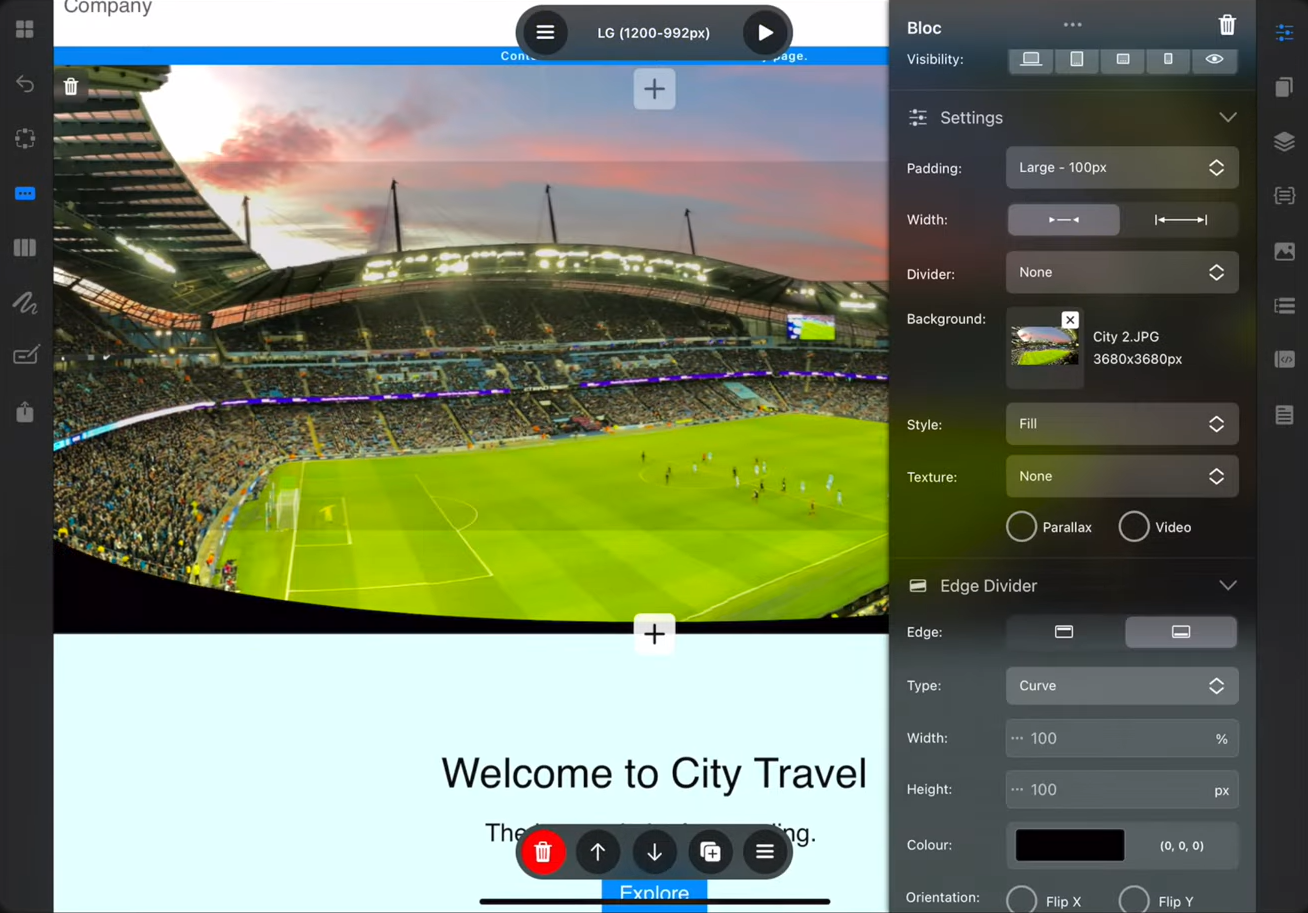
🏆
Winner: Blocs
. Both Blocs and Drupal offer robust website building and editing features, but when it comes to mobile editing, Blocs takes the lead. Blocs has a mobile editor app specifically designed for the iPad. This app provides a touch-first interface and includes all the essential features needed to create various types of websites, offering a flexible and efficient solution for building professional and beautiful websites on an iPad.
On the other hand, Drupal does not have a dedicated mobile editor app, which limits its accessibility and convenience for users who prefer to work on their websites from mobile devices.
In summary, Blocs receives a higher rating due to its dedicated mobile editor app and the flexibility it offers, while Drupal, despite its robust features, falls short in terms of mobile editing capabilities.
Product testing options
Product Testing OptionsAssesses the options for trying out platform features before commitment.Score Components:
- Trial quality (40%): Extent and usefulness of the trial or free version.
- Feature accessibility (30%): How many features are available to test.
- Trial duration (20%): Length of the trial period.
- Ease of transition (10%): Smoothness of moving from trial to paid plans.
 7.0
7.0
 7.1
7.1
Overall Result
:
Drupal wins
. Drupal scores slightly higher than Blocs with a score of 7.1 compared to Blocs’ 7.0. While Blocs offers a trial version and a 14-day money-back guarantee, Drupal, being an open-source CMS, is free to use and does not require a trial or money-back guarantee. However, Blocs allows for testing some premium features during its trial period and within the 14-day refundable period, which Drupal does not offer.

|

|
|
|---|---|---|
|
Free Plan |
No |
Yes (open-source software) |
|
Trial Duration |
Yes |
No |
|
Testing Premium Features |
Yes, within 14-day refundable period |
No |
|
Money Back Guarantee |
14-day money back guarantee |
Not applicable (open-source software) |
Price
PriceLooks at the cost-effectiveness and value for money of each platform.Score Components:
- Plan value (40%): What each pricing tier offers.
- Transparency and clarity (30%): Clearness of pricing structures.
- Flexibility of plans (20%): Range of options to suit different budgets.
- Hidden costs (10%): Additional expenses not included in the plan.
 9.0
9.0
 5.7
5.7
Blocs offers a one-time payment plan with an additional add-on for more features, while Drupal is free but requires separate purchases for domain, web hosting, and website builder subscriptions.

|

|
|
|---|---|---|
|
$40-$50 |
Blocs Plus (+$49.99): An add-on to the Blocs 5 plan, providing additional features such as the ability to build custom WordPress themes without writing code, extract typography, assets, and color schemes from any website, a productivity-boosting image editor, a class styles library manager, and an SEO helper. Value for price: 8.5 |
No offering at this amount. |
|
$90+ |
Blocs 5 ($99.99): This plan offers a native Mac app with no subscription required. It allows building unlimited websites, works offline, includes animations & scroll FX, powerful interactions, no page limit, font manager, writer mode, auto backup, all V5 updates, and email support. A Blocs license can be used on one Mac and all future Blocs V5 updates come for free. Value for price: 8.0 |
No offering at this amount. |
location. As a result in rare cases the prices displayed here can differ from the ones you see on their
websites.
Hosting quality
Hosting
qualityExamines the reliability and performance of the hosting solutions.Score Components:
- Uptime (40%): Consistency and reliability of website availability.
- Speed (30%): Loading times and performance.
- Bandwidth and storage (20%): Sufficiency of resources provided.
- Data centers (10%): Quality and distribution of hosting infrastructure.
 0
0
 0
0
Winner: N/A
. Neither Blocs nor Drupal offer hosting services. Users of both platforms will need to secure their own hosting services. The quality of hosting will depend on the chosen provider. Therefore, the hosting quality score for both is 0.

|

|
|
|---|---|---|
|
Do they offer hosting? |
No | No |
|
Type of hosting: |
N/A | Depends on hosting provider |
|
Uptime: |
N/A | Depends on hosting provider |
|
Uptime Guarantee: |
N/A | Depends on hosting provider |
|
Data Centers: |
N/A | Depends on hosting provider |
Website Speed Optimization
Website Speed OptimizationEvaluates optimization of website loading timesScore Components:
- PageSpeed Score (30%): Google’s score indicating performance optimization.
- Loading Time (30%): The average time until a website is fully interactive.
- Mobile Optimization (15%): Optimization effectiveness for mobile devices.
- Resource Optimization (15%): Optimizing images, scripts, and other heavy resources.
- CDN Usage (10%): Use of CDN to enhance speed across geolocations.
 5.2
5.2
 6.4
6.4
🏆 Winner: Drupal
Both Blocs and Drupal prioritize website performance and page speed, but Drupal gets the edge due to its higher website speed optimization score and the flexibility it offers users in optimizing almost all aspects of their website.

|

|
|
|---|---|---|
|
Focus |
WebP Generation |
User-guided optimization |
|
Performance Tools |
Not specified |
Drupal guides and tutorials |
|
Key Strategies |
WebP Generation |
Comprehensive optimization guides |
|
Load Times |
Varies depending on optimization |
Varies depending on optimization |
|
Page Speed Scores Range |
Varies depending on optimization |
Varies depending on optimization |
|
Core Web Vitals Improvement |
Not disclosed |
Depends on users |
Blocs, a website builder designed specifically for Mac users, uses WebP Generation as its key strategy for speed optimization. However, Blocs does not disclose any information about its Core Web Vital improvements. The load times and PageSpeed scores vary depending on optimization and website complexity.
On the other hand, Drupal, an open-source content management system, offers numerous guides and tutorials on speed optimization, allowing users to optimize almost all aspects of their website. The Core Web Vital improvements depend on the users. Similar to Blocs, Drupal’s load times and PageSpeed scores vary depending on optimization and website complexity.
Get a head start on website creation with AI
Create a custom website tailored to your business needs 10X faster with 10Web AI Website Builder!
Plugins and integrations
Plugins and integrationsMeasures the range and effectiveness of additional plugins and integrations.Score Components:
- Variety of options (40%): Range of available add-ons.
- Integration smoothness (30%): Ease of integrating plugins into the site.
- Quality of plugins (20%): Functionality and reliability of the options.
- Custom integration capabilities (10%): Support for custom or third-party integrations.
 6.8
6.8
 8.6
8.6
🏆 Winner: Drupal.
With a score of 8.6, Drupal leads the way with its extensive range of modules and seamless integrations. It’s a powerhouse for adding functionalities that scale with your website. Blocs, with a decent score of 6.8, offers a variety of plugins too, but Drupal’s breadth and depth, especially for complex websites, give it the upper hand.
It is however worth mentioning that there are more free modules available for Drupal compared to Blocs.
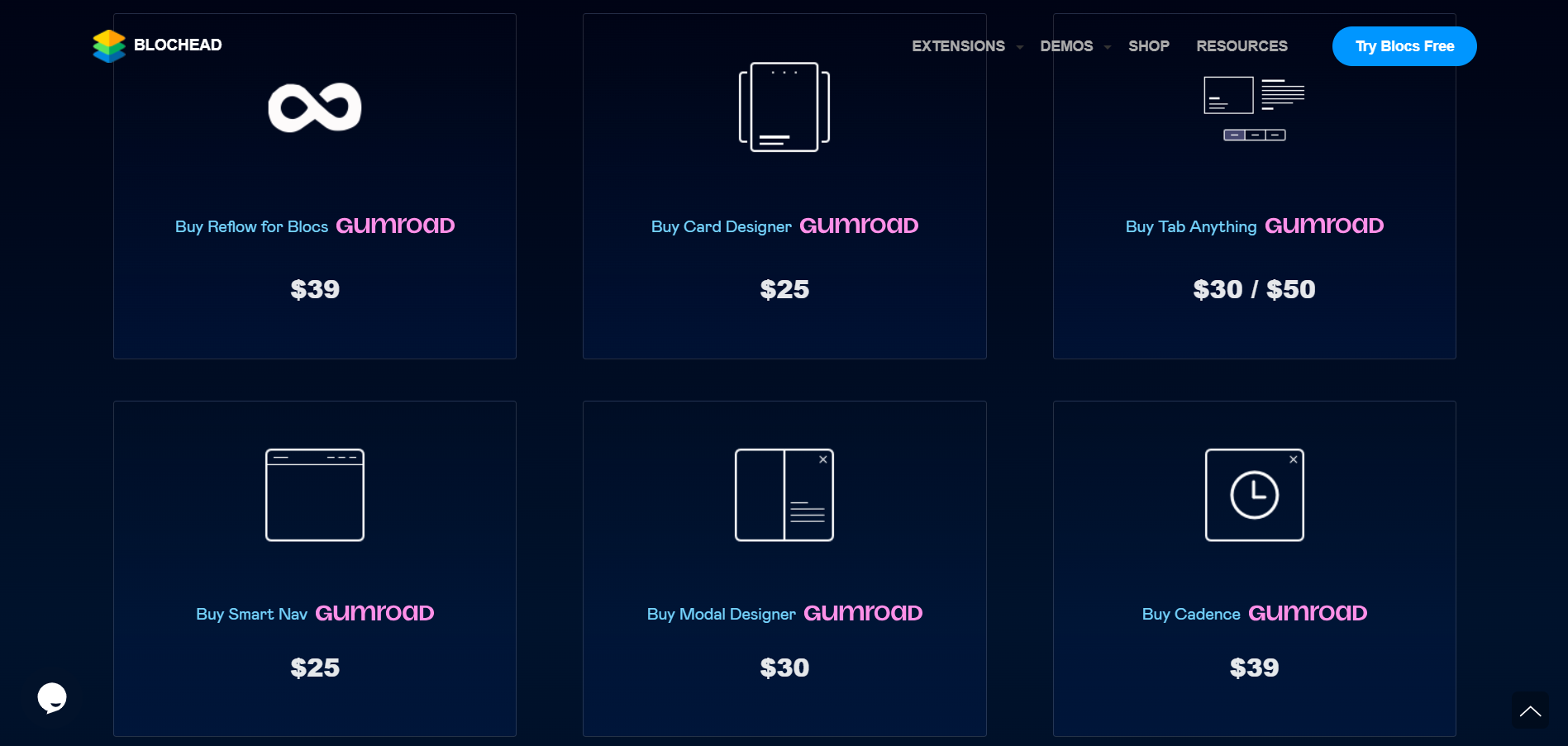
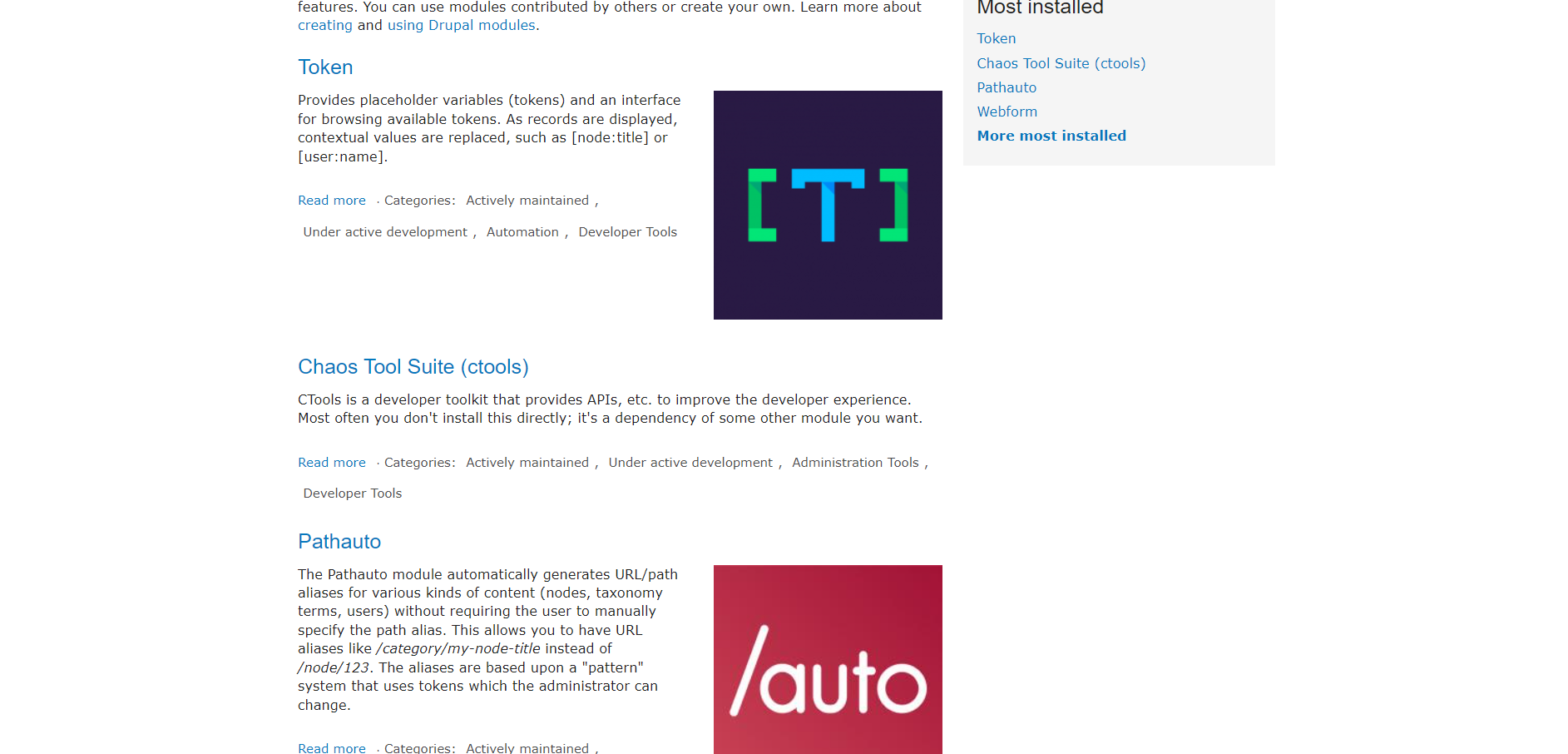
Marketing Features
Design FunctionalitiesRepresents how well each platform allows for creative design and customization of websites.Score Components:
- Template Variety (30%): Range and quality of design templates.
- Customization (30%): Flexibility and options for design alterations.
- User Interface (20%): Ease and intuitiveness of the design process.
- Responsiveness (10%): Adaptability to different devices and screen sizes.
- Innovation (10%): Unique design features and tools.
 6.9
6.9
 8.0
8.0
🏆
Overall Winner: Drupal
. Drupal stands out for its comprehensive SEO features, extensive social media integrations, and robust analytics and reporting capabilities. Blocs, while user-friendly and offering a good range of features, lacks in ads and promotions capabilities.

|

|
|
|---|---|---|
|
SEO Tools |
|
|
|
Email Marketing |
✓ (via Mailchimp integration) |
✓ (via third-party extensions) |
|
Blogging |
|
|
|
Social Media Integration |
|
|
|
Analytics and Reporting |
✓ (via Google Analytics integration) |
✓ (basic built-in features and Google Analytics integration) |
|
Ads and Promotions |
✗ |
✓ (via third-party extensions) |
Customer Support
Customer supportEvaluates the quality and availability of support options.Score Components:
- Response time (40%): Speed of support responses.
- Support quality (30%): Effectiveness and helpfulness of the support.
- Availability (20%): Range of support channels (phone, chat, email).
- Resource richness (10%): Quality of self-help and educational materials.
 5.1
5.1
 6.7
6.7
🏆 Winner: Drupal
. Comparing Blocs vs Drupal, Drupal takes the lead in this category with its extensive support options. Drupal offers a comprehensive range of customer support, including community forums, detailed documentation, and professional 24/7 support services through providers like Drupal Connect. This ensures that users have access to the help they need, whether it’s for basic inquiries or professional maintenance.
Blocs, on the other hand, leans heavily towards self-service support, relying predominantly on articles and a community forum. While this may be sufficient for some users, it can leave others feeling unsupported, especially when dealing with complex issues that require direct, personalized assistance.
Security
SecurityLooks at the platforms’ security measures and data protection.Score Components:
- Data protection (40%): Safeguards for user and customer data.
- SSL and encryption (30%): Implementation of secure connections.
- Compliance (20%): Adherence to industry security standards.
- Regular updates (10%): Frequency of security updates and patches.
 0.0
0.0
 8.3
8.3
🏆
Winner: Drupal
. Drupal’s security measures are comprehensive and robust, offering a wide range of features to protect websites and user data. These include regular updates, advanced security features like two-factor authentication, and extensive access control capabilities. Drupal also has a dedicated security team that continuously works on identifying and fixing vulnerabilities.
On the other hand, Blocs does not provide specific information about its security measures. As Blocs is primarily an offline website builder and does not offer hosting, the security measures can vary widely depending on the hosting provider users choose. Therefore, when it comes to security, Drupal is the clear winner.
AI Capabilities
AI capabilitiesMeasures the effectiveness of AI-driven features and tools.Score Components:
- Automation efficiency (40%): Impact of AI on streamlining processes.
- Personalization (30%): AI-driven customization for users or customers.
- AI-Assisted design (20%): Role of AI in website design and functionality.
- Data analysis (10%): Use of AI in interpreting user data and analytics.
 5.4
5.4
 7.5
7.5

|

|
|
|---|---|---|
|
AI Builder |
Blocs does not have an AI builder |
Drupal does not have an AI website builder |
|
AI Ecommerce features |
Blocs does not have any AI ecommerce features |
Drupal integrates AI across various functionalities, enhancing e-commerce through chatbots, content creation, marketing automation, and cognitive services for improved user interactions |
|
AI Content Generation |
Blocs website builder incorporates an innovative AI Assistant that enhances the user experience by allowing for the generation and editing of content directly within a Blocs project |
Drupal enhances content creation through AI with modules like AI Connect, enabling integration with AI services for diverse functionalities like content generation, SEO optimization, and multilingual support |
|
Additional AI features |
The AI Assistant in Blocs introduces advanced AI capabilities to the design environment, enabling users to enhance their projects with intelligent features |
Drupal, a versatile content management system, can be enhanced with AI capabilities through modules, third-party services, and custom development to provide a range of advanced features |
🏆 Winner: Drupal
. Drupal’s AI capabilities, particularly through its AI integrations across various functionalities, are highly user-friendly and innovative. It excels in offering personalized website design suggestions, content optimization, and streamlined site setup processes. Drupal’s AI also assists in providing SEO recommendations and layout adjustments based on user behavior.
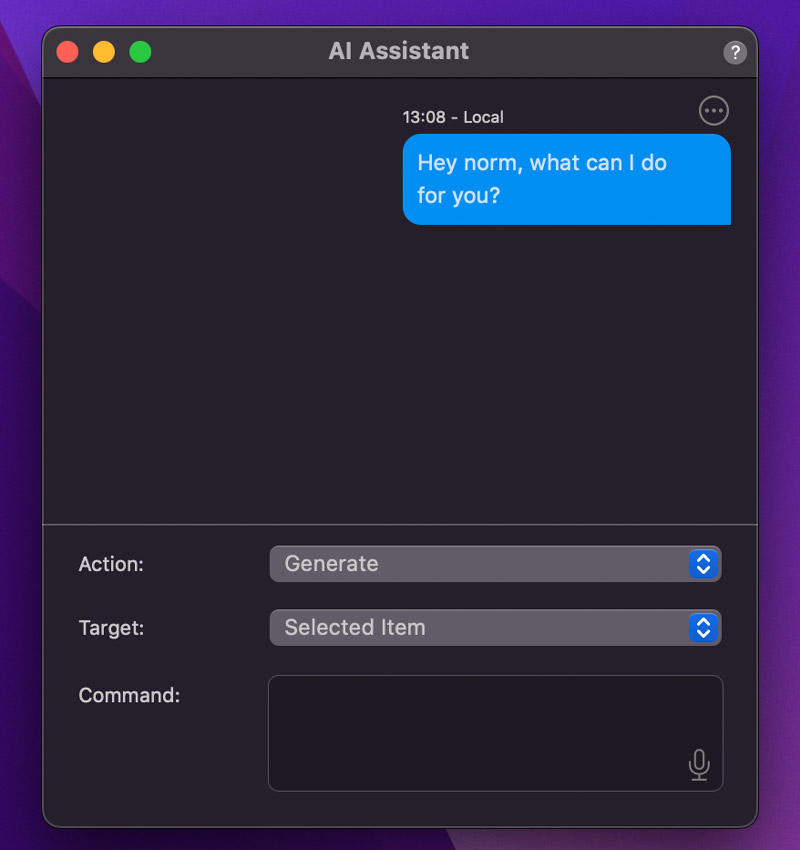
Blocs, with a score of 5.4, utilizes AI mainly to enhance the user experience. Its AI features focus on content generation and editing directly within a Blocs project. While Blocs’ AI is powerful, it is more design-centric compared to Drupal’s business and data-centric AI.
User Management
User ManagementAssesses the platforms’ capabilities in managing user roles, permissions, and accessibility.Score Components:
- Role Customization (40%): Flexibility in creating and defining user roles and
permissions. - Ease of Management (30%): User interface and tools for managing users.
- Access Control (20%): Effectiveness of access control measures for different user
levels. - Scalability (10%): Ability to manage a growing number of users efficiently.
 1.4
1.4
 9.1
9.1
🏆 Winner: Drupal
. The user management capabilities of Blocs and Drupal are significantly different.
- Blocs allows only one user to build and edit a website.
- Drupal’s flexible permission and role system allows for an unlimited number of users to manage and edit a website, only constrained by server capacity and practical management considerations. Administrators can create various roles, such as “Editor” or “Administrator”, each with customized permissions. There’s no inherent limit in Drupal on the number of users with administrative or editing capabilities, enabling extensive collaboration and content management possibilities.
Drupal User Roles and Access Levels:
| Role | Description | Access Highlights |
|---|---|---|
| Editor | Users responsible for content creation, editing, and publishing. | Can create, edit, delete, and publish content; can also manage comments. |
| Moderator | Users focused on site moderation, including comment and user management. | Can approve or delete comments, block users, and manage reported content. |
| Administrator | Users with full access to all administrative features of the site. | Can change site configuration, manage all content, users, permissions, and install modules/themes. |
Additional Features

|

|
|
|---|---|---|
|
SSL Certificate |
|
|
|
Custom Domain |
|
|
|
Free Custom Domain Included |
|
|
|
International Domains |
|
|
|
Mobile Responsive |
|
|
|
Page Speed |
|
|
|
Website Builder Mobile App |
|
|
|
Convert a Website To An App |
|
|
|
Website Analytics |
|
|
|
Multilingual Sites |
|
|
|
Multiple Users |
|
|
User Feedback
Blocs website builder is praised for its intuitive drag-and-drop interface, making it accessible to users with varying levels of web development expertise. Its extensive library of templates and customization options, including the ability to add custom CSS and JavaScript, facilitates the rapid creation of diverse and visually appealing websites. However, users report encountering bugs and express a desire for more sophisticated customization features, indicating room for improvement. Overall, Blocs is valued for significantly streamlining the web design process, supported by a strong community and educational resources, despite its learning curve and occasional technical glitches.
Users appreciate Drupal for its ease of use, security, and flexibility as an open-source CMS, highlighting its ability to scale and support a variety of websites and applications with modern technology tools. The community and documentation are frequently mentioned positives, providing ample support and resources. However, criticisms include a relative lack of plugins and themes compared to competitors like WordPress, the learning curve for customization without coding, and some challenges with installation and updates. The platform is praised for its robust content management capabilities, enabling users to manage content and user access efficiently. Overall, feedback underscores Drupal’s strength in creating secure, customizable, and scalable web solutions, despite some desires for more intuitive UI and easier setup.
The making of this blog
We followed a clear, step-by-step process to write and research this article.
FAQ
What are the main differences between Blocs and Drupal?
Which platform is better for ecommerce, Blocs or Drupal?
Can I use Blocs if I'm not a Mac user?
Is Drupal difficult to learn for beginners?
Which platform offers better support for SEO and marketing?
How do Blocs and Drupal compare in terms of pricing?
Which platform is better for creating a multilingual website?










